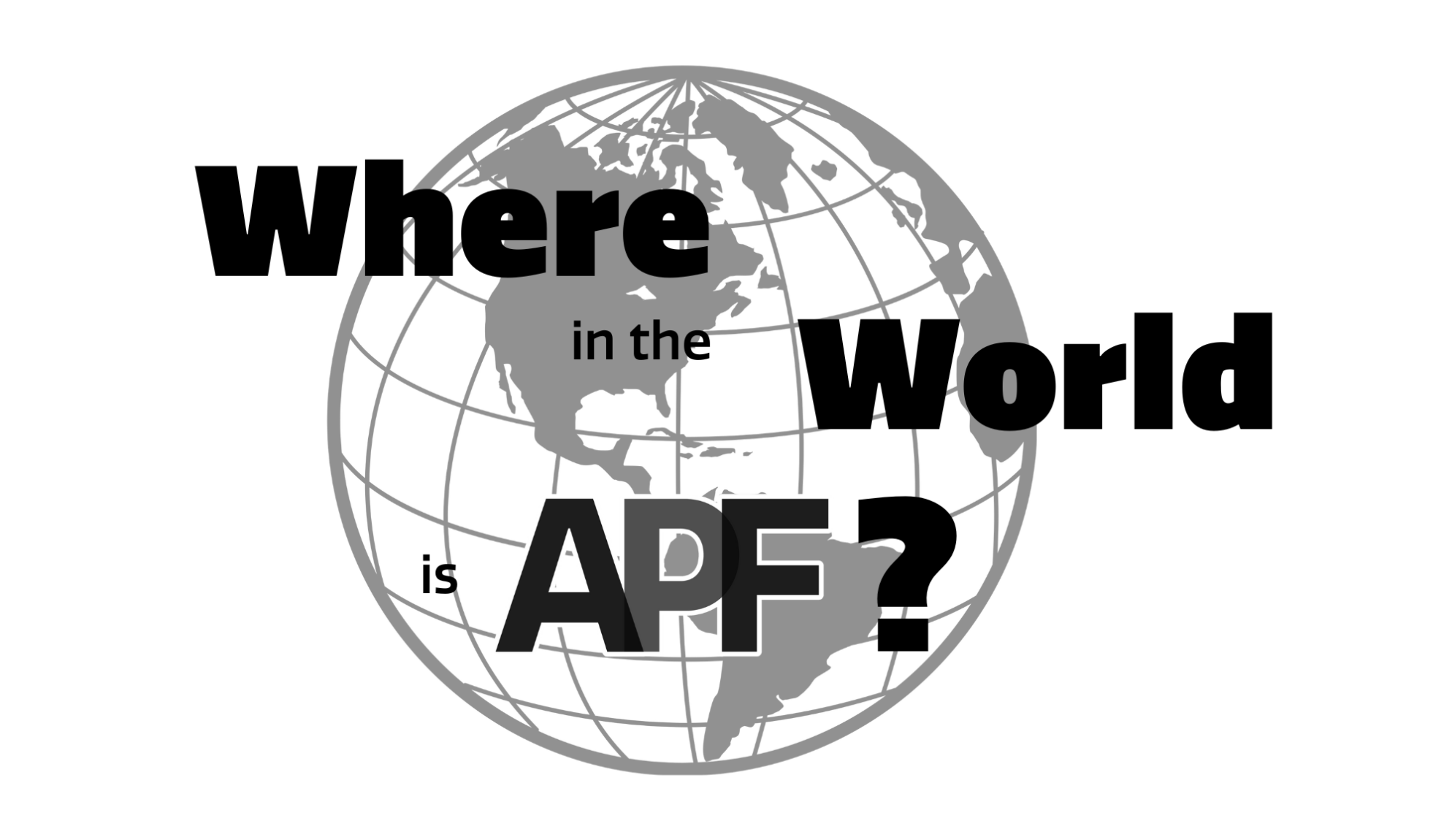Where in the World is APF with Dr. Natasha Schvey


Welcome to “Where in the World is APF”, our recipient highlight series where we catch up with our grant, scholarship, and award recipients all over the world!
Today, we’re speaking with Dr. Natasha Schvey, who received the 2016 Visionary Grant for the project, “Stigma, Health, and Psychosocial Functioning among Transgender Active Duty Service Members.”
Can you give us an update on your career and research since being awarded an APF Visionary Grant in 2016?
Since being awarded the APF Visionary grant, I accepted a tenure-track faculty position at the Uniformed Services University. I was promoted to Associate Professor in 2022 and was named the Director of Graduate Studies in 2023. Colleagues and I have continued to publish in the areas of gender-affirming and trans-inclusive care and the impacts of stigma and barriers to care among trans and gender diverse service members and military-affiliated youth.
In what aspects has your APF-funded research impacted your career as a researcher and your contributions to the field?
The APF Visionary Award was my very first grant as principal investigator. The impact it had on my research and career trajectory can’t be overstated. The award helped me to establish a productive and impactful line of research in trans-inclusive healthcare and health inequities. I have since co-authored nearly 20 papers and chapters on affirming care and clinical considerations among trans and gender diverse folx within and outside of the military setting. It is a privilege to be able contribute to our growing understanding of gender-affirming care- particularly among youth. I have formed many new collaborations since receiving the APF-visionary award and am so fortunate to be surrounded by brilliant colleagues and clinicians who are working tirelessly to improve access to life-saving affirming care.
Have you received subsequent funding, awards or other significant accomplishments since receiving your APF grant?
I am now co-PI of an NIH-funded R21 award, and have been a co-investigator on several other funded awards. My work on affirming care and health inequities among trans communities has been published in top-tier journals, such as JAMA Internal Medicine, JAMA Pediatrics, and JAMA Network Open. My work has also received considerable media attention, including PBS and NBC News.
How did your APF-funded research positively influence or make significant contributions to the LGBTQIA+ community?
My APF Visionary grant, entitled “Stigma, health, and psychological functioning among transgender active duty service members” aimed to elucidate and elevate the lived experiences of trans service members via in-person focus groups (this was pre-covid and zoom was not yet on anyone’s radar). This research was sorely needed given that the policy allowing for military service among trans folx was poised to be implemented around the time of my grant submission. However, immediately after my grant protocol received IRB approval in July 2017, a major change in DoD policy was announced via social media, which resulted in a lot of confusion and fear among trans service members and their families. Given that it appeared that military service would once again be prohibited among openly trans service members, I had to quickly pivot and remove the focus group portion of my study entirely. This was a difficult decision, but one that ultimately was made to protect the identities and privacy of our trans service members who now felt vulnerable and deeply concerned about their futures. The APF program officers were incredibly patient and flexible and worked with me to pivot the design of my study to an anonymous online survey where we could guarantee confidentiality. Thankfully, we had an overwhelming response rate and managed to recruit nearly 230 trans service members through partnerships with national advocacy and support groups. Findings elucidated the psychosocial health of trans service members, as well as experiences of stigma they had faced while in uniform. Though we were not able to conduct the focus groups as initially planned, this research was among the first to study a large sample of trans-identifying service members. This was particularly critical given the ongoing discussion surrounding the eligibility of trans service members at the time. Findings from our study were cited in a seminal report by the Palm Center advocating for trans-inclusive military service.
How have you used the outcomes from your APF-funded research to inform future projects or initiatives?
Results from my APF-funded research were published in three highly regarded peer-reviewed journals: LGBT Health, Stigma and Health, and Medical Care. Since receipt of my grant, I have published nearly 20 additional papers and chapters on the topics of gender-affirming and trans-inclusive healthcare within both military-affiliated and civilian populations. I have also been invited to speak about my research to advocacy, military, and academic groups throughout the country, including the LGBTQIA+ student interest group of my university, the Maryland Department of Health, the Psychological Health Center of Excellence, the VA, Tripler Army Medical Center, and university colloquia.
What inspired your interest in supporting the LGBTQIA+ community through psychology?
It is incumbent upon us as psychologists to amplify the voices, needs, and lived experiences of those facing marginalization and stigma. As a clinical psychologist working within a military medical school, I found myself in a unique position to support our trans service members and dependents. This feels especially critical as we are witnessing the LGBTQIA+ community face unprecedented levels of discrimination, persecution, and scape-goating. Through my collaborations, I try to shed light on health inequities, barriers to care, and the critical importance of inclusive and affirming healthcare for adults and youth. As I am not a member of the LGBTQIA+ community, I also recognize the necessity of cultural humility and centering the voices and authority of those within the community. Therefore, I am profoundly grateful to my LGBTQIA+ collaborators for welcoming me into this field and allowing me to help serve their communities.
Want to contribute to projects like this and create impact with psychology? Donate to APF today!
